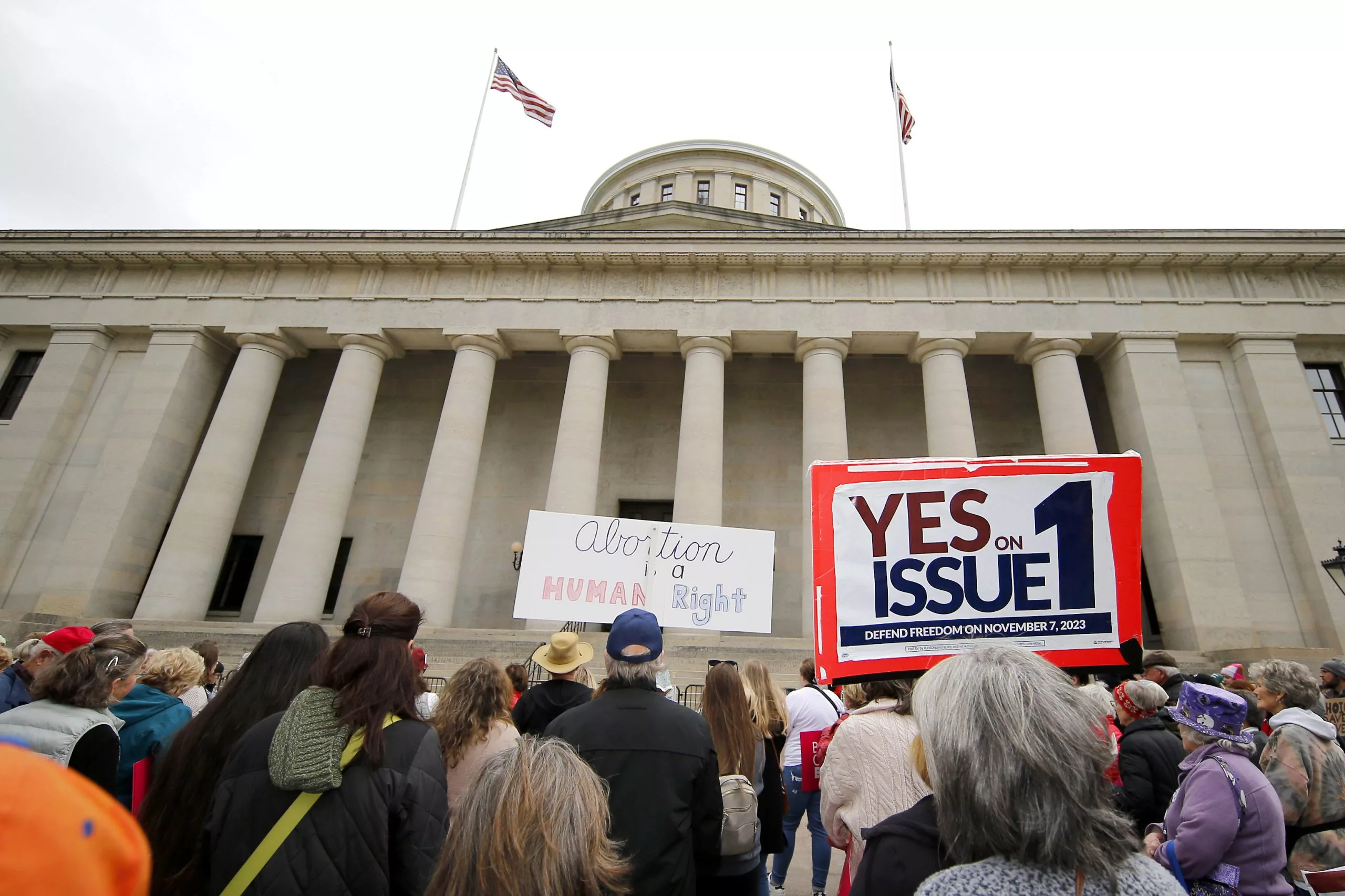COLUMBUS, Ohio (AP) — The most far-reaching of Ohio’s laws restricting abortion was struck down on Thursday by a county judge who said last year’s voter-approved amendment enshrining reproductive rights renders the so-called heartbeat law unconstitutional.
Enforcement of the 2019 law banning most abortions once cardiac activity is detected — as early as six weeks into pregnancy, before many women know they’re pregnant — had been paused pending the challenge before Hamilton County Common Pleas Judge Christian Jenkins.
Jenkins said that when the U.S. Supreme Court overturned Roe v. Wade and returned power over the abortion issue to the states, “Ohio’s Attorney General evidently didn’t get the memo.”
The judge said Republican Attorney General Dave Yost’s request to leave all but one provision of the law untouched even after a majority of Ohio’s voters passed an amendment protecting the right to pre-viability abortion “dispels the myth” that the high court’s decision simply gives states power over the issue.
“Despite the adoption of a broad and strongly worded constitutional amendment, in this case and others, the State of Ohio seeks not to uphold the constituional protection of abortion rights, but to diminish and limit it,” he wrote. Jenkins said his ruling honors voters’ wishes.
The ACLU of Ohio sued on behalf of a group of abortion providers in the state, the second round of litigation filed to challenge the law.
“This is a momentous ruling, showing the power of Ohio’s new Reproductive Freedom Amendment in practice,” Jessie Hill, cooperating attorney for the ACLU of Ohio, said in a statement. “The six-week ban is blatantly unconstitutional and has no place in our law.”
An initial lawsuit was brought in federal court in 2019, where the law was first blocked under the landmark 1973 Roe v. Wade decision. It was briefly allowed to go into effect in 2022 after Roe was overturned. Opponents of the law then turned to the state court system, where the ban was again put on hold. They argued the law violated protections in Ohio’s constitution that guarantee individual liberty and equal protection, and that it was unconstitutionally vague.
After his predecessor twice vetoed the measure citing Roe, Republican Ohio Gov. Mike DeWine signed the 2019 law once appointments by then-President Donald Trump had solidified the Supreme Court’s conservative majority and raised hopes among abortion opponents.
The Ohio litigation has unfolded alongside a national upheaval over abortion rights that followed the Dobbs decision that overturned Roe, including constitutional amendment pushes in Ohio and a host of other states. Issue 1, the amendment Ohio voters passed last year, gives every person in Ohio “the right to make and carry out one’s own reproductive decisions.”
Yost, acknowledged in court filings this spring that the amendment rendered the Ohio ban unconstitutional, but sought to maintain other elements of the 2019 law, including certain notification and reporting provisions.
Brought to you by www.srnnews.com








